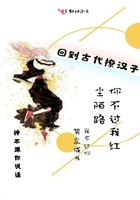There may be another manner of knowing as well-that will be discussed later. What I now assert is that at all events we do know by demonstration. By demonstration I mean a syllogism productive of scientific knowledge, a syllogism, that is, the grasp of which is eo ipso such knowledge. Assuming then that my thesis as to the nature of scientific knowing is correct, the premisses of demonstrated knowledge must be true, primary, immediate, better known than and prior to the conclusion, which is further related to them as effect to cause. Unless these conditions are satisfied, the basic truths will not be 'appropriate' to the conclusion. Syllogism there may indeed be without these conditions, but such syllogism, not being productive of scientific knowledge, will not be demonstration. The premisses must be true: for that which is non-existent cannot be known-we cannot know, e.g. that the diagonal of a square is commensurate with its side. The premisses must be primary and indemonstrable; otherwise they will require demonstration in order to be known, since to have knowledge, if it be not accidental knowledge, of things which are demonstrable, means precisely to have a demonstration of them. The premisses must be the causes of the conclusion, better known than it, and prior to it; its causes, since we possess scientific knowledge of a thing only when we know its cause; prior, in order to be causes; antecedently known, this antecedent knowledge being not our mere understanding of the meaning, but knowledge of the fact as well. Now 'prior' and 'better known' are ambiguous terms, for there is a difference between what is prior and better known in the order of being and what is prior and better known to man. I mean that objects nearer to sense are prior and better known to man; objects without qualification prior and better known are those further from sense. Now the most universal causes are furthest from sense and particular causes are nearest to sense, and they are thus exactly opposed to one another. In saying that the premisses of demonstrated knowledge must be primary, I mean that they must be the 'appropriate' basic truths, for I identify primary premiss and basic truth. A 'basic truth' in a demonstration is an immediate proposition. An immediate proposition is one which has no other proposition prior to it. A proposition is either part of an enunciation, i.e. it predicates a single attribute of a single subject. If a proposition is dialectical, it assumes either part indifferently; if it is demonstrative, it lays down one part to the definite exclusion of the other because that part is true. The term 'enunciation' denotes either part of a contradiction indifferently.
A contradiction is an opposition which of its own nature excludes a middle. The part of a contradiction which conjoins a predicate with a subject is an affirmation; the part disjoining them is a negation. I call an immediate basic truth of syllogism a 'thesis' when, though it is not susceptible of proof by the teacher, yet ignorance of it does not constitute a total bar to progress on the part of the pupil: one which the pupil must know if he is to learn anything whatever is an axiom. I call it an axiom because there are such truths and we give them the name of axioms par excellence. If a thesis assumes one part or the other of an enunciation, i.e. asserts either the existence or the non-existence of a subject, it is a hypothesis;
if it does not so assert, it is a definition. Definition is a 'thesis' or a 'laying something down', since the arithmetician lays it down that to be a unit is to be quantitatively indivisible; but it is not a hypothesis, for to define what a unit is is not the same as to affirm its existence.
Now since the required ground of our knowledge-i.e. of our conviction-of a fact is the possession of such a syllogism as we call demonstration, and the ground of the syllogism is the facts constituting its premisses, we must not only know the primary premisses-some if not all of them-beforehand, but know them better than the conclusion: for the cause of an attribute's inherence in a subject always itself inheres in the subject more firmly than that attribute; e.g. the cause of our loving anything is dearer to us than the object of our love. So since the primary premisses are the cause of our knowledge-i.e. of our conviction-it follows that we know them better-that is, are more convinced of them-than their consequences, precisely because of our knowledge of the latter is the effect of our knowledge of the premisses. Now a man cannot believe in anything more than in the things he knows, unless he has either actual knowledge of it or something better than actual knowledge.
But we are faced with this paradox if a student whose belief rests on demonstration has not prior knowledge; a man must believe in some, if not in all, of the basic truths more than in the conclusion. Moreover, if a man sets out to acquire the scientific knowledge that comes through demonstration, he must not only have a better knowledge of the basic truths and a firmer conviction of them than of the connexion which is being demonstrated: more than this, nothing must be more certain or better known to him than these basic truths in their character as contradicting the fundamental premisses which lead to the opposed and erroneous conclusion. For indeed the conviction of pure science must be unshakable.















